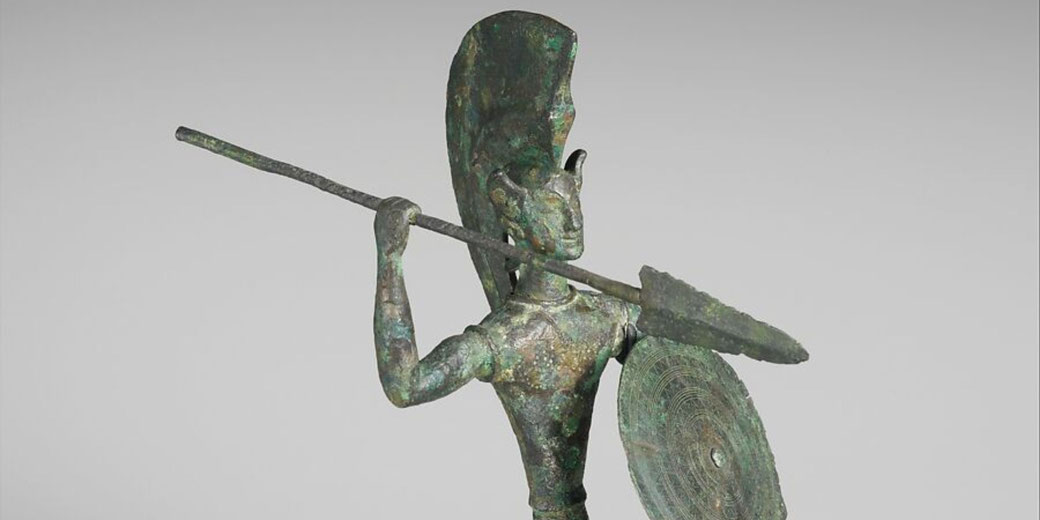The Peloponnesian League: Sparta's grand plan to dominate ancient Greece

The Peloponnesian League developed into one of the most powerful military alliances in the ancient Greek world. When the League formed under Sparta’s direction during the later 6th and early 5th centuries BCE, it provided a system of mutual defence and cooperation that allowed Sparta to extend its influence throughout the Peloponnese and into mainland Greece.
The League operated without a central government or written constitution, yet it enabled Sparta to dominate major political and military affairs for more than a century.
What were the origins of the Peloponnesian League?
In the early 6th century BCE, Sparta began forming military alliances with neighbouring states because it faced local instability and external threats.
After victories over Messenia and Tegea, Sparta recognised that long-term control required more than conquest.
The city’s leaders arranged formal oaths with allied states, which agreed to provide troops during wartime and avoid independent diplomatic activity.
These arrangements likely developed gradually between roughly 550 and 510 BCE and laid the foundation for a more formal network.
Eventually, the Battle of Sepeia around 494 BCE confirmed Sparta’s military control in the southern Peloponnese.
Sparta defeated Argos, which eliminated a major regional rival and establishing itself as the leading land power in the area.
From that point, the League evolved into a more organised and lasting military structure.
When the alliance formed, its structure remained relatively informal, as no written charter defined its powers.
Instead, allied cities sent representatives to councils in Sparta, where they discussed proposals related to war.
Although voting occurred, Sparta retained control over when the councils met and which topics were raised.
In practice, this gave Sparta full control of the alliance’s plans. Sparta kept its allies loyal without sharing real power in the council, a dynamic that later historians have noted based on Thucydides’ own observations.
Who were the members of the Peloponnesian League?
Among the earliest and most powerful allies of Sparta was Corinth, which contributed naval strength and trade influence.
Other key members included Elis, Mantinea, and Tegea. Each member pledged military support and agreed not to align with rival powers.
In return, Sparta offered protection and the promise of shared victories in future campaigns.
Each member retained self-rule under the terms of the alliance. They managed their own affairs by preserving local traditions and maintaining their constitutions.
However, no city could form separate military coalitions or act independently in matters of foreign policy.
The alliance demanded loyalty to Sparta’s broader strategic interests. When Mantinea attempted to act independently in 418 BCE, Sparta responded by breaking down its democratic institutions and forcing it to obey again.
Occasionally, Sparta allowed cities outside the Peloponnese, such as Thebes, to join short campaigns.
These arrangements focused on immediate military needs rather than official membership.
Although Thebes cooperated with Sparta during the Peloponnesian War, it never became a full member and later became a main opponent.
In most cases, cities within the Peloponnese entered the League either willingly or after diplomatic pressure from Sparta.
How much power did Sparta have over the League?
Clearly, Sparta assumed full control of the League’s military direction. Its army, which other cities viewed as the most effective in Greece, gave it complete authority during joint campaigns.
Sparta appointed commanders, set battle plans, and decided where and when allied forces would be deployed.
Sparta exercised control by relying on its military reputation and on its strategic planning.
The career of King Agis II, who led League forces to victory at Mantinea in 418 BCE, showed the effectiveness of this model.
When necessary, Sparta also intervened in allied cities to enforce agreement. If a city threatened to leave the alliance or refused to support a campaign, Sparta responded with force or political manipulation to restore obedience.
At times, Sparta removed governments it considered disloyal and installed oligarchies that favoured its policies.
Such interventions confirmed that League membership depended on submission to Spartan authority rather than shared sovereignty.
Although the alliance projected the image of mutual cooperation, the pattern of Spartan action made clear who controlled it.
Why did the League finally collapse?
After the end of the Peloponnesian War in 404 BCE, Sparta tried to extend its control over all of Greece.
After it replaced the Athenian democracy with the Thirty Tyrants and supported similar regimes elsewhere, Sparta alienated former allies.
The Thirty ruled Athens with violence and repression, further damaging Sparta’s reputation.
In cities such as Corinth and Thebes, resistance grew in response to Spartan interference and oppressive tactics.
Soon after, the outbreak of the Corinthian War in 395 BCE revealed the instability of the League.
Many former allies joined a coalition led by Athens and Thebes to oppose Spartan control, and, as a result, Sparta struggled to maintain the alliance.
Although it survived the war with Persian assistance, its reputation declined across the region.
In 371 BCE, the Theban victory at Leuctra ended Sparta’s military control. The defeat shattered its reputation and encouraged cities that had once feared its power.
Members of the League, no longer confident in Spartan leadership, began to abandon the alliance in favour of rival partnerships.
Eventually, the League dissolved without ceremony. By the mid-360s BCE, without support from former allies, Sparta lost its influence.
Its structures no longer functioned, and Sparta lacked the means to force loyalty or organise joint military campaigns.
The alliance that had once controlled southern Greece simply ceased to exist.
What do you need help with?
Download ready-to-use digital learning resources
Copyright © History Skills 2014-2025.
Contact via email
With the exception of links to external sites, some historical sources and extracts from specific publications, all content on this website is copyrighted by History Skills. This content may not be copied, republished or redistributed without written permission from the website creator. Please use the Contact page to obtain relevant permission.





